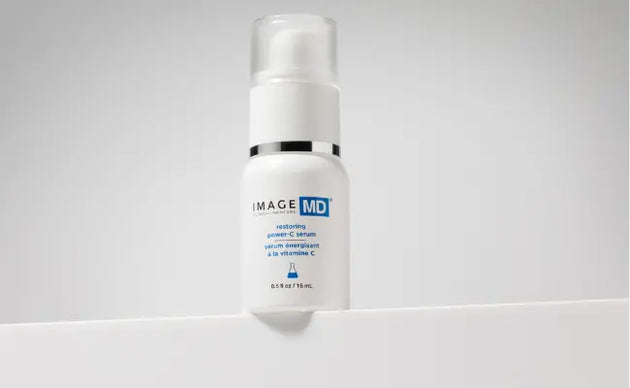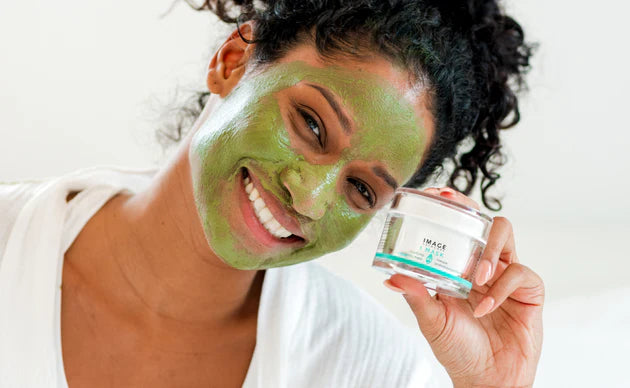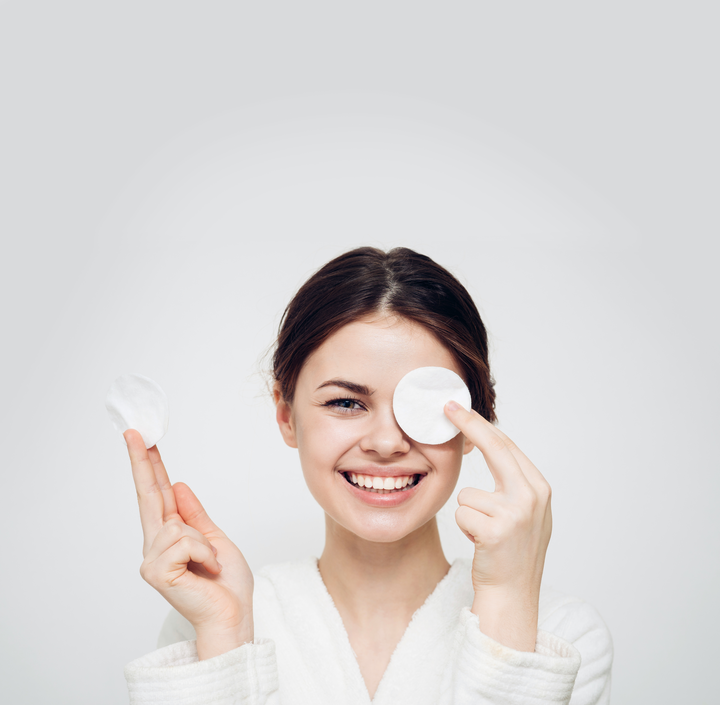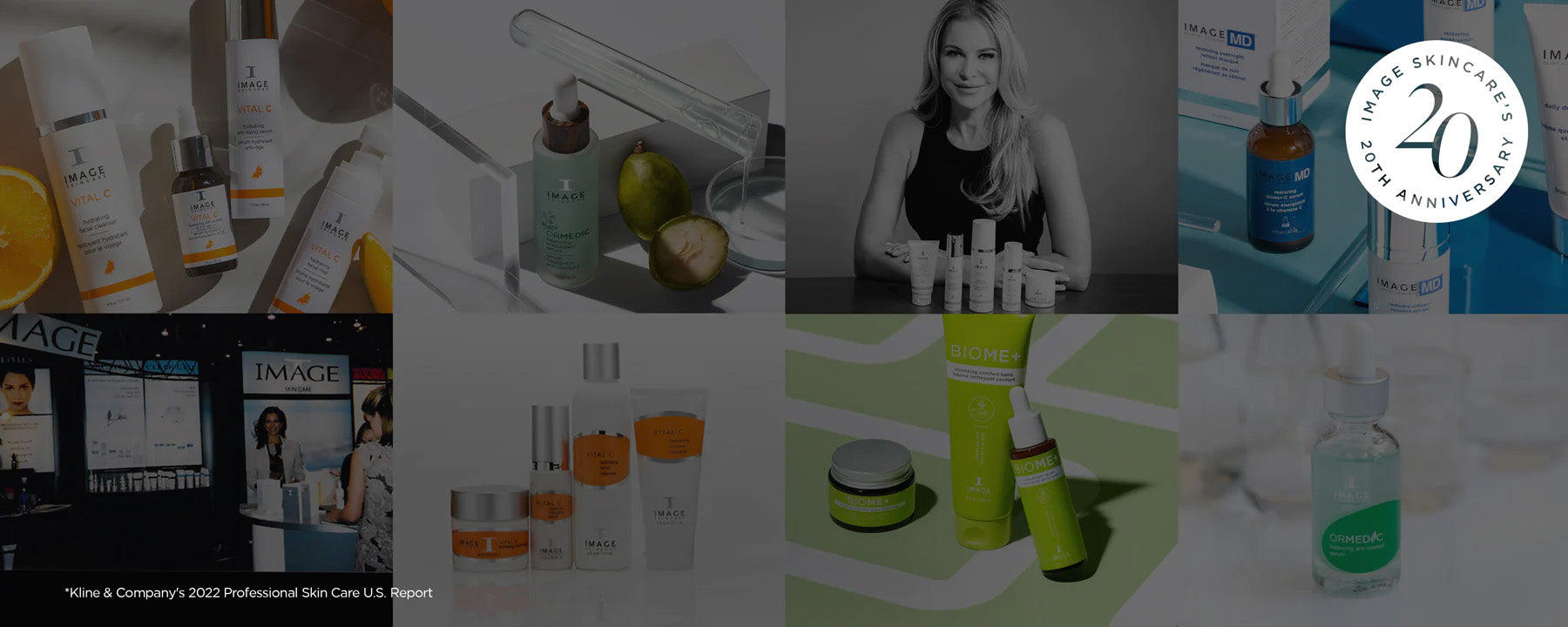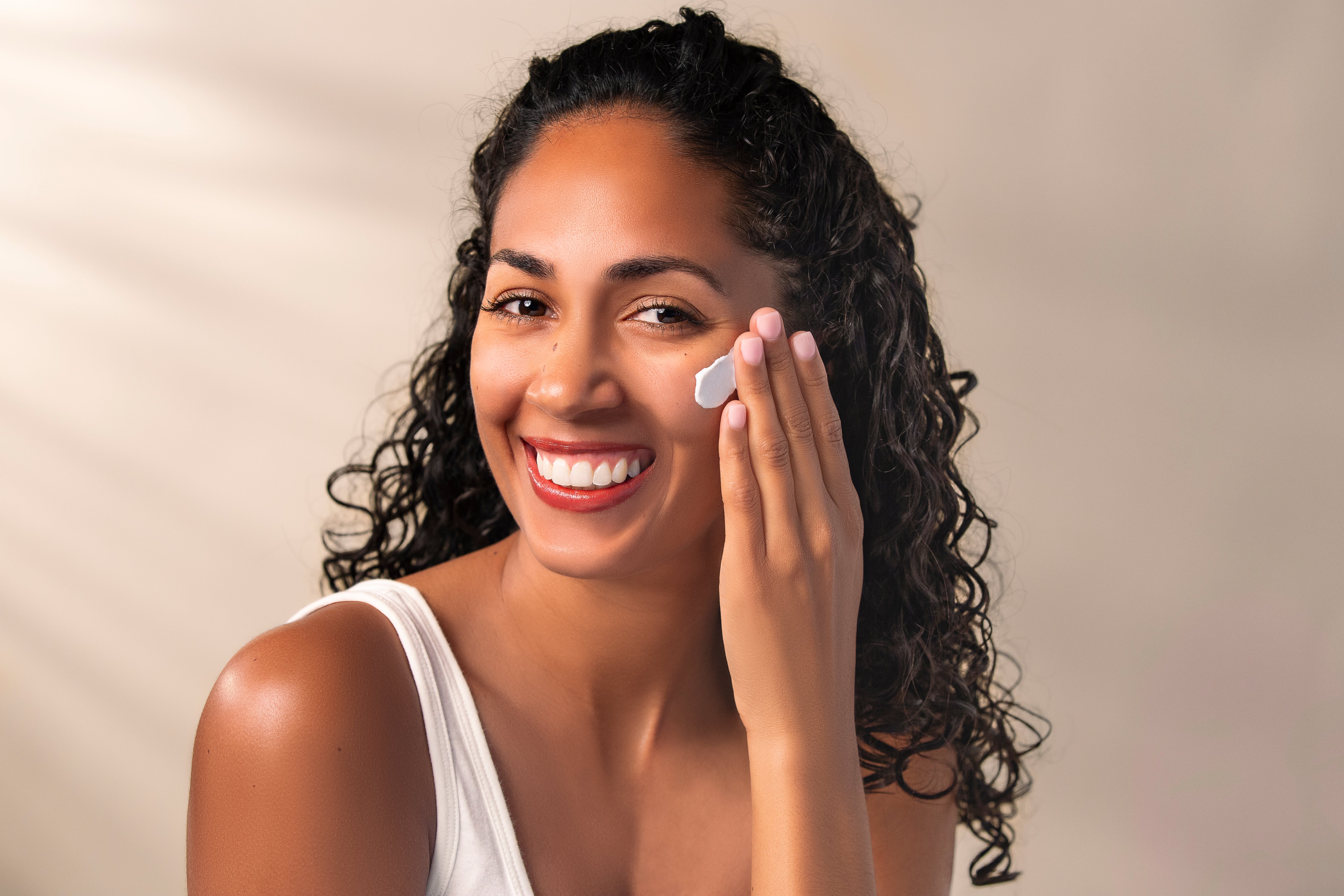
How to Choose the Best Sunscreen for Your Face
Choosing the Right Sunscreen for Your Face: A Comprehensive Guide to Skincare Ingredients and Formulas
Sunscreen is a must-do, year-round, non-negotiable thing. Indoors or out, sunscreen diligence is crucial to guarding against harmful UVA and UVB rays, minimising the risk of skin cancer, and preventing premature ageing.
Over the past decade, the variety of sunscreens have evolved significantly, but not all sunscreens are created equally. In this article, we'll explore the best sunscreen for your face so you can protect your skin and maintain a healthy glow.
The Evolution of Sunscreen
Over the years, the way we value sunscreen has changed. 30 years ago, sunblock was intended for beach or pool use, and came in much lower sun protection factors. Lotions were sticky, heavy, and messy to apply. Today, sun protection is considered a necessity for healthy skin. We've come a long way from the thick, white zinc oxide formulas of the past.
Today, there are many sunscreen options for the face, from lightweight serums to tinted moisturisers. We also have a better understanding of the science behind sun protection, and what ingredients are most effective. Plus, there are more eco-friendly options available now, like mineral-based sunscreens that are safer for both our skin and the environment.
One of the biggest trends in facial sunscreens is multi-tasking products. Many moisturisers, foundations and primers now include SPF protection, making it easy to add sun protection into our daily routines. And with the growing awareness of blue light damage, we're seeing more products offering protection from this type of radiation as well.
Tinted sunscreen has also risen in popularity. Ideal for skincare minimalists, it does double duty shielding the sun while evening out skin tone. Tinted sunscreen eliminates the need for a separate foundation or BB cream, which can clog pores and cause breakouts. They come in a range of shades to suit every skin tone, and feature skincare benefits such as hydration and anti-ageing ingredients.
Innovations in skincare have made sunscreens easier to wear and more beneficial to the skin. As the importance of sun protection is emphasised, the future of facial sunscreen looks promising. We can look forward to new formulations with active ingredients that blend sun care and skincare.
Your Face Needs Its Own Sunscreen, Here’s Why…
If you were stranded on a desert island, body sunscreen is better than no sunscreen, but in general, facial sunscreens are much more effective for this delicate area. The skin on our face is thinner and more sensitive than the skin on our bodies. It’s also more exposed to environmental stressors like pollution, makeup, and frequent washing. Therefore, more gentle sunscreen formulas are necessary to prevent irritation and breakouts.
Facial sunscreens also offer skin care benefits beyond sun protection. Our PREVENTION+ line contains anti-ageing ingredients and antioxidants to address specific concerns on the face, such as wrinkles, loss of firmness, and uneven skin tone. These added skin care benefits can provide an extra boost to your skin care routine beyond what you would find in a basic sunscreen for the body.
Cosmetic combination is also a factor. Ideally, your sunscreen should complement your makeup and skin care products. Facial sunscreen primers like PREVENTION+ daily perfecting primer SPF 50 are specially formulated for smooth application and proper skin care layering, whereas body sunscreens are not.
The Ideal Sunscreen Ingredients for Your Skin Type
When choosing the right sunscreen for your face, it’s important to consider your unique skin type, and which ingredients will benefit you most. Every face is different, but most of us fit within these four buckets: Combination, Oily, Dry, or Mature.
For oily or acne-prone skin, choose ingredients like zinc oxide or titanium dioxide to help absorb excess oil and sebum. Mature skin benefits from sunscreens with antioxidants like vitamin C, vitamin E, and ferulic acid. For combination skin, opt for lightweight, formulas with hyaluronic acid or glycerin to keep skin hydrated.
No matter what skin type you have, The American Academy of Dermatology recommends water-resistant sunscreen with an SPF 30 or higher, containing broad-spectrum protection.
Choosing Between Sunscreen Gel, Moisturizer and Serum
Now that we’ve narrowed down the best ingredients to benefit your skin type, let’s select the ideal sunscreen formula: Gels, serum or moisturizer?
With a weightless formula and waterless texture, our PREVENTION+® clear solar gel SPF 30 is the ideal works-for-everyone sunscreen. The gel formula delivers broad-spectrum sun protection with a clear finish (no white cast) so it’s suitable for all skin tones. It also absorbs into the skin quickly, without clogging pores, making it suitable for everyday wear and use under makeup.
Sunscreen serums work for all skin types. They offer the dual benefit of sun protection and skin care support. PREVENTION+® sun serum SPF 30 is packed with beneficial ingredients such as antioxidants and skin-nourishing vitamins. It packs a healthy punch by banishing rays and optimising your skin’s healthy glow. Serum sunscreens are often used as a skin care layering step, applied before moisturisers or makeup.
Moisturiser sunscreens are perfect for those with dry or mature skin. Richer in texture than serums and gels, the hydrating properties quench thirsty skin in addition to protecting it from UVA/ UVB rays. PREVENTION+ daily hydrating moisturizer SPF 30+ and PREVENTION+® daily ultimate protection moisturizer SPF 50 are all-mineral daily SPF moisturisers with zinc oxide that rub in seamlessly, leaving a sheer, weightless finish under makeup or alone. Additionally, the antioxidants help protect against environmental skin stressors that can cause dryness, discoloration and signs of premature aging.
If uneven skin tone is a concern, a tinted moisturiser sunscreen is ideal. PREVENTION+ daily tinted moisturizer SPF 30 is perfect for those who want subtle coverage while protecting their skin from the sun. Its silken texture glides on smoothly, hydrating with a hint of color that leaves skin with a healthy, natural glow.
The oil absorbing ingredients in matte moisturiser sunscreen works well for those with acne-prone or oily skin. PREVENTION+® daily matte moisturizer SPF 30 protects and primes the face, leaving a soft, matte finish. Its lightweight texture and shine-minimising formula blends weightlessly into the skin, making it an excellent base under makeup, too.
The Difference Between Chemical and Mineral Sunscreens
Now that we’ve covered facial sunscreen ingredients and formulations, let’s discuss the distinction between mineral and chemical sunscreens. While both offer sun protection, they work in different ways and have different advantages depending on your lifestyle, activity and personal preference. Learn more about chemical and mineral sunscreens in PREVENTION+® products.
Mineral sunscreen, also known as physical sunscreen, contains mineral-based ingredients such as zinc oxide and titanium dioxide. These ingredients work by creating a physical barrier on the skin's surface, reflecting UV rays away from the skin. It’s also considered safer and gentler on the skin than chemical sunscreen and starts working as soon as it’s applied.
Chemical sunscreen contains compounds that absorb UV radiation and convert it into heat, which is then released from the skin. It provides more coverage and greater protection against UVA rays than mineral sunscreen. Its thinner consistency is easy to apply and it’s more water-resistant, making it a better choice for swimming or sports. However, it can take up to 20 minutes to start working, so plan accordingly.
Facetime: Protect Your Skin From Blue Light
Blue light is a type of light that comes from electronic devices like smartphones, laptops, and TVs. It's different from the ultraviolet (UV) radiation that we usually associate with skin damage and skin cancer. However, studies show that blue light can also harm our skin, causing premature ageing, dark spots, and hyperpigmentation. It can also disrupt our sleep patterns and affect our overall health.
Fortunately, sunscreen can help protect the skin from the harmful effects of blue light. PREVENTION+ daily hydrating moisturizer SPF 30+ was formulated specifically to protect against blue light from phones, monitors and the sun. The all-mineral SPF moisturiser delivers broad-spectrum protection against UVA and UVB rays. The zinc oxide formula rubs in seamlessly, leaving a sheer finish under makeup or on its own.
To further reduce your exposure to blue light, take breaks from your electronic devices. Set a timer for every hour or so to remind you to look away from your screen and take a short break. You can also wear blue light glasses to help filter out blue light from your devices.
Sun Smart Tips (Straight From a Skin Doctor)
We called upon Dr. Nina Desai, board-certified medical and cosmetic dermatologist, to explain the sunscreen basics. Aside from choosing a broad spectrum sunscreen with an SPF of 30 or higher, she recommends wearing sun protective UPF clothing, avoiding the sun between 10 am and 4 pm, and opting for self-tanning lotion to achieve a safe, faux glow.
“The right sunscreen for you is one that you will use consistently. Both physical and chemical sunscreens Both physical and chemical sunscreens are very effective. It’s important to choose a sunscreen with a texture you like so you know you will be consistent and reapply.”
Dr. Desai also emphasises the importance of annual skin checks. Being proactive about taking care of your skin and identifying abnormal spots early is key. This provides the opportunity to treat suspicious moles before they have a chance to become malignant or spread.
Sunscreen Rules Everyone Should Know
- Apply sunscreen generously and regularly: Most people don't apply enough sunscreen, which can result in inadequate protection from harmful UV rays. At minimum, apply a shot glass-sized amount of sunscreen to cover all exposed skin, and reapply every two hours or more if you are swimming or sweating.
- Apply sunscreen evenly: The way you apply sunscreen can impact its effectiveness. Make sure you apply it evenly to all areas of exposed skin, and don't forget to apply it to commonly overlooked areas like the ears, scalp, and back of the neck.
- Protect your lips. Look for balms or glosses that contain SPF 20 or higher and reapply often.
- Don't rely on sunscreen alone: While sunscreen is an important tool for protecting your skin from UV damage, it shouldn't be your only line of defense. It's also a good idea to wear protective clothing, seek shade during peak sun hours, and avoid tanning beds.
- Check the expiration date: Sunscreen can lose its effectiveness over time, especially if it has been exposed to heat or humidity. Check the expiration date on your sunscreen and discard any that are past their prime. It's also a good idea to replace your sunscreen every year, to ensure that you are getting the best possible protection.
Sunscreen Every Day, Everywhere, No Matter What
Sunscreen is not just for the beach. While it’s commonly associated with warm-weather destinations and outdoor activities, it's important to wear sunscreen every day, regardless of your location or agenda. Even on cloudy or cool days, harmful UV rays can penetrate through the clouds and cause damage to the skin.
It’s important to note UVA rays are present during daylight hours and can penetrate through most types of glass, including windows in homes, offices, and cars. So, if you are working by a window enjoying the view, or driving enjoying the vista, you can still be exposed to UVA radiation—which can contribute to skin ageing, wrinkles, and an increased risk of skin cancer.
In conclusion, when it comes to the best sunscreen for your face, there are several factors to consider: such as skin type, skin condition, sunscreen formulation and lifestyle. The good news is, IMAGE offers a range of options to suit all skin types and personal preferences. From serums to gels to moisturisers, all PREVENTION+ products provide broad-spectrum UVA and UVB protection, plus the added benefits of hydration, mattifying effects, skin tone evening, anti-ageing and more.
Whatever ingredient, effect or formula your beautiful face requires, there’s a sunscreen for that—and IMAGE has you covered.

